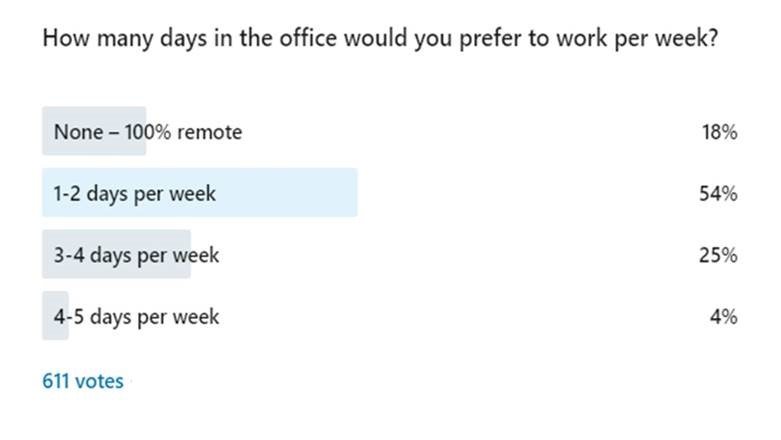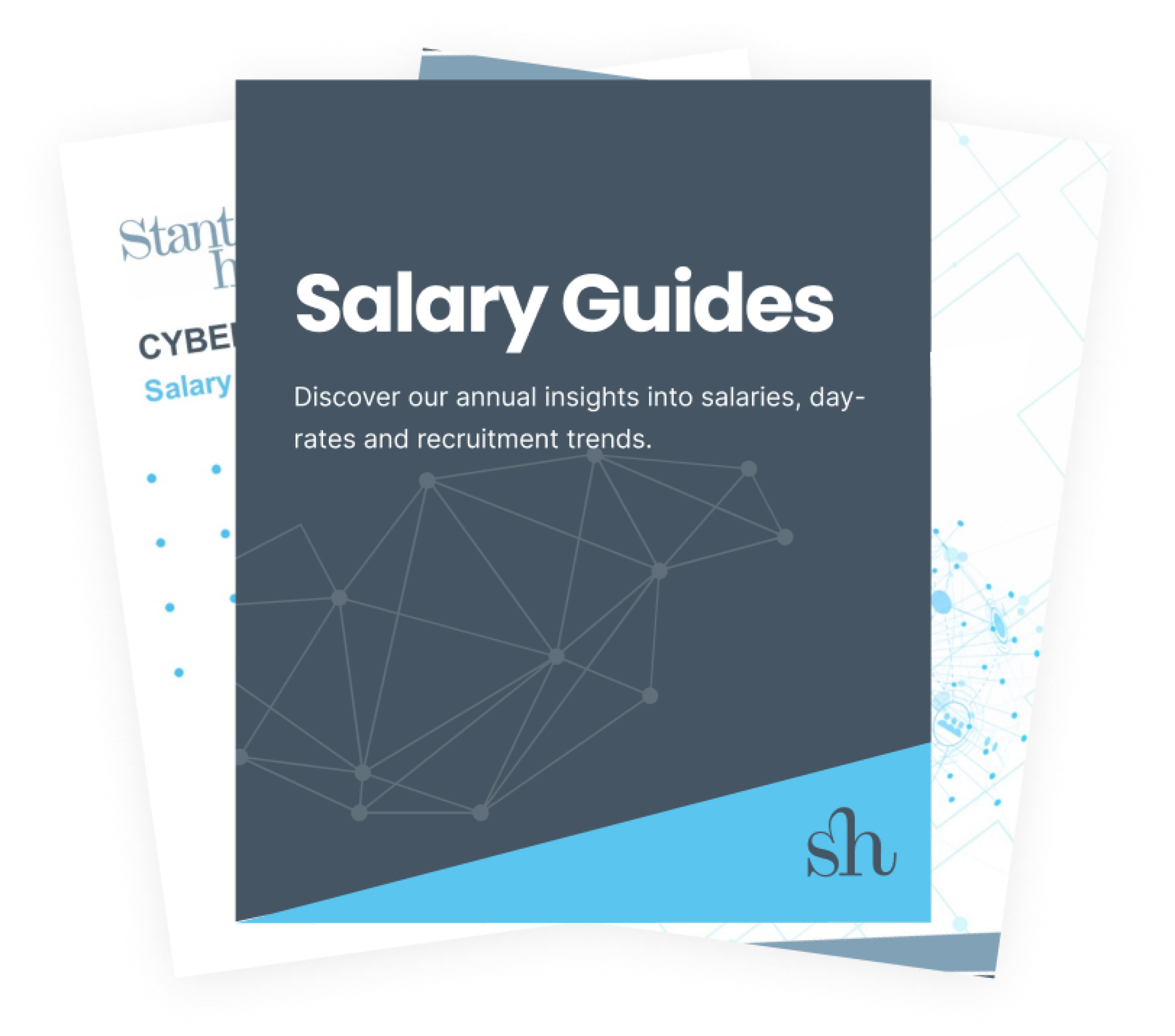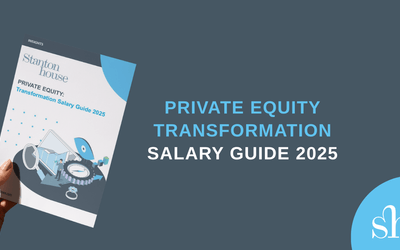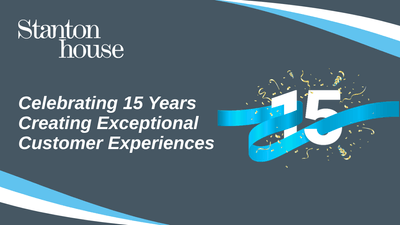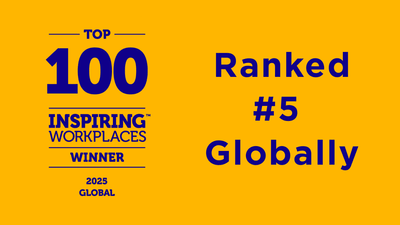
Will The Office Exist In a Post Covid-19 World?
It’s fair to say that the world of work has changed forever as we enter a new era of remote working. But what is the sentiment to remote working amongst the professional working population now?
The cost and time savings of not having to commute every day are hard to dismiss and as lockdown eases, employee expectations are bound to have changed when it comes to the ‘return to the office’.
So, how many days in the office do working professionals really want - given their varied individual experiences over the past few months?
Over 70% of professionals now want to work in the office less than two days per week
Stanton House’s recent poll, taken by over 600 professionals, reveals that a large majority (72%) would prefer to work two days or less per week in the office going forward. Less than a third (29%) would prefer to work three days or more per week in the office and only 4% would like to go back to four days plus per week.
One to two days in the office comes out on top, with over half, (54%) voting for this as their preference and 18% say they would prefer to work from home 100% of the time.
These findings suggest that while some crave the return to an office environment the vast majority have come to the conclusion that they will never want to work in the office five days per week, ever again.
43% more men than women want to work remotely 100% of the time
Interestingly, when comparing sentiment to remote working between gender, our poll reveals that a higher proportion of men (20%) would prefer to work remotely all of the time - compared to only 14% of women – that’s a 43% increase.
The opposite is true for one to two days in the office, where a higher proportion of women (58%) voted for this as their preference - compared to 51% of men.Our poll cements what we already know - that organisations will be required to rethink their approach to remote, agile, and flexible working - putting People and Culture teams, front and centre, to design and drive this change.
But have employers really seen clear benefits from this forced change to a homeworking environment and how committed are they to expanding and extending remote working, organisation-wide, for the long term?
Will new HR policies align to the consensus revealed by our poll, or indeed go even further and flex to the individual?
Employers realise the benefits of remote working
Many of the business leaders I speak to tell me, that they have had their eyes opened to the benefits of remote working, not least the tremendous cost savings that can be achieved with reduced real estate needs.
Not including utilities, security and maintenance the rent per seat in the UK can range from *£150 to £1500 per month, depending on location and the amenities available. London’s West End tips the scales, where it can cost **£207 annually just to put your laptop down on a desk.
If you consider the floor space some large corporates take in the expensive high-rise buildings in Canary Wharf and The City of London for example, these cost savings can amount to millions.
There can be no doubt that employers across the country will be modelling different scenarios with reduced office space. Leadership teams within organisations, both large and small, will be debating not if, but how much and to what extent, their workforce will continue working remotely in the long-term.
Just a few of the companies that have already announced intent to expand work-from-home in the UK include Morgan Stanley, Barclays, Thomson Reuters, Vodafone, HSBC, Twitter, Facebook and Unilever.
“We’ve proven we can operate with no footprint….I see a future where part of every week, certainly part of every month, a lot of our employees will be at home.” James Gorman, Morgan Stanley, CEO
However, this commitment to expand remote working it is not just to save costs on office space. Most leaders I speak to tell me they have experienced increased productivity, better collaboration and teamwork, increased employee engagement and a significant reduction in absenteeism - dispelling the many concerns and misconceptions to homeworking pre-Covid-19.
Having the right, secure technology and communication channels has been critical to achieving this, however, as has having managers, who don’t revert to micromanagement amidst uncertainty, but are able to trust and enable their teams.
Training needs have also been highlighted and identified, particularly for middle management, where resilience, adaptability and agility are often cited as key competencies which are lacking. Additionally, the spotlight on employee wellbeing has only magnified through this crisis as has the continued importance of diversity and inclusion in the workplace.
The challenge for employers right now
As many employers once again pivot their people, processes and systems from full remote working, to a hybrid (office/home) working environment, maintaining the benefits gained amidst lockdown and addressing the technology and talent issues identified will be critical to lasting innovation and growth.
The ramifications of getting the technology, talent or operating model wrong will be catastrophic for the competitiveness of any business as we enter this new era of work.
Employers now need to ask themselves - do they have the internal expertise needed to design, implement and sustain the huge culture shift that is required? And if big corporate offices are a thing of the past where and how will people come together to collaborate? How do individuals continue to nurture the ‘social equity’ they’ve built over the years with colleagues and customers - remotely? Can we ever really replicate the benefits of socialising after work, the corridor conversations and meeting someone face-to-face?
The critical questions many business leaders and HR professionals are now trying to answer now are:
1. How do we once again pivot our people, processes and systems from full remote working, to a hybrid (office/home) working environment?
2. Do we have the right / secure technology and communication channels to support a hybrid (office/home) working model?
3. How do we maintain the benefits gained from remote working amidst Covid-19?
4. How do we tackle the tech and training needs identified and truly enable our manager population?
5. How will we evolve our employee value proposition (EVP) to attract and retain the best talent, now that flexible and remote working is the ‘new norm’?
6. What are the ramifications of getting any of these considerations wrong?
*Instant Offices UK Commercial Market Summary 2019
** Instant Offices
Get in touch If you need help finding talent with the necessary expertise to transform your business for the new era of remote working, please get in touch.
About the poll The poll was posted to Stanton House’s company LinkedIn network of over 25,000 followers. The poll was live for 1 week from the 27th June 2020 to the 4th July 2020. 611 people voted answering the question: “How many days in the office would you prefer to work per week?”

